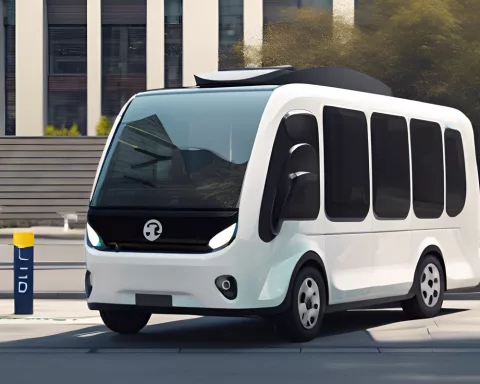South Africa is in a tough spot with its driver’s licence system. An old printing machine, breaking down often, can’t keep up with the growing number of renewals. This has caused long waits and frustration for many drivers. The government is caught in a messy situation, facing criticism over how they chose a new printer, which is now under investigation for not following the rules. As citizens like Nomvula struggle to get their licences on time, everyone is watching to see how the Department of Transport will fix this problem.
What is causing the crisis in South African driver’s licence issuance?
The crisis in South African driver’s licence issuance is primarily due to the ageing printing machine, which has been in service for 26 years and frequently breaks down. This has resulted in a backlog of renewals and scrutiny over the tendering process for new smart card printers, raising concerns about compliance and transparency.
A Strain on the System: The Ageing Machine and Its Consequences
In South Africa, an impending crisis threatens the daily lives of many citizens: the suspension of driving licence issuances. The Department of Transport is currently under intense scrutiny as it faces the potential cancellation of a vital contract for new smart card driving licence printers. A machine that has been in service for 26 years is now struggling to keep up with the rising demand, leading to an escalating backlog of renewals since January 2025.
The strain is evident in the number of breakdowns the ageing machine has suffered—159 incidents that have effectively halted printing operations since the beginning of the year. The backlog is growing, and the need for new machines has never been more pressing. Proposals suggest acquiring locally manufactured advanced printing machines, which promise more efficient maintenance and repairs. This would be a significant improvement over the current reliance on international shipping for repairs, a process riddled with delays and logistical challenges.
To compound the problem, the tendering process for these new, more secure driving licence cards has come under severe scrutiny. The Auditor-General of South Africa (AGSA) identified irregularities in the process, pointing to non-compliance with critical supply chain management regulations and the Public Finance Management Act. This revelation has added to the public and political outrage, casting a shadow over the department’s management of the project.
Legal Battles and Political Pressure
Transport Minister Barbara Creecy has become a central figure in this crisis. On March 5, 2025, she initiated legal action to halt the awarding of a new contract after a thorough investigation into the tendering process. City Press revealed that the department’s legal advisors had cautioned against cancelling the tender awarded to the French firm Idemia, warning that it could lead to a lengthy legal battle. Advocate Adam Masombuka, the chief director of legal services within the department, emphasized that cancelling the R500 million contract could further cripple the system.
The Organisation Undoing Tax Abuse (Outa) brought the controversy to a head by raising alarms about the tender process. This prompted Minister Creecy to request a swift investigation by the Auditor-General to verify whether the process adhered to proper regulations and if Idemia had the necessary technical capabilities. By January 2025, the Auditor-General’s report had revealed numerous instances of non-compliance and raised concerns about the security of personal data involved in the tender’s execution.
The Democratic Alliance (DA) has also been vocal in demanding complete transparency regarding the tender’s irregularities. MP Dr Chris Hunsinger has called for a thorough examination of the Department of Transport’s procurement practices. While Minister Creecy’s legal actions address certain legal aspects, they do not tackle the deeper issues of systemic mismanagement. Hunsinger has stressed the need for full disclosure and has promised to use Parliamentary mechanisms to hold Minister Creecy accountable.
The Bigger Picture: Historical and Artistic Contexts
The current predicament of South Africa’s transportation infrastructure is not an isolated issue but part of a broader historical struggle. The country has long faced challenges related to modernization and equitable access. The driving licence system, though a seemingly mundane aspect of daily life, reflects these broader issues. The ongoing crisis is more than a bureaucratic entanglement; it is a microcosm of South Africa’s enduring pursuit of efficiency, transparency, and equity.
Drawing parallels to the Renaissance period, the tender process’s promise of advanced technology and enhanced security can be likened to the era’s ambitious quests for knowledge and innovation. The new smart card driving licence project aims to overhaul the existing system, though it faces modern challenges of governance and accountability.
In this complex scenario, the experiences of citizens waiting for their licence renewals highlight the system’s failures. Take Nomvula, a young professional whose routine commute has turned into a logistical nightmare due to the delayed renewal of her driving licence. Her story, like many others, embodies the tangible frustrations and poignant impact of administrative inefficiencies on everyday life.
Navigating the Future: The Department’s Crossroads
The Department of Transport now stands at a critical juncture. The decisions it makes will not only resolve the immediate driving licence crisis but will also set a precedent for future governance. The implications are significant, and the nation is watching closely as events unfold.
The intricate interplay of legal actions, political pressures, and administrative challenges paints a vivid picture of a system in turmoil. To steer through this turbulent landscape, the Department of Transport must act with caution and determination, keeping in mind the profound implications for South Africa’s transportation infrastructure and its socio-economic fabric.
In conclusion, the South African Department of Transport faces a formidable challenge as it navigates this complex situation. The stakes are high, and the department’s response will have far-reaching consequences for the nation’s transportation system and its citizens’ daily lives. As the drama continues to unfold, the need for transparency, efficiency, and effective governance becomes ever more crucial.
FAQ: Crisis in South African Driver’s Licence Issuance
What is causing the crisis in South African driver’s licence issuance?
The crisis is primarily due to an ageing printing machine that has been in service for 26 years. This machine frequently breaks down, leading to a backlog of licence renewals. Additionally, the tendering process for new smart card printers has faced scrutiny for not complying with regulations, further complicating the situation.
How many incidents have affected the printing machine this year?
Since the beginning of 2025, the ageing printing machine has suffered 159 breakdown incidents, which have significantly halted printing operations and contributed to the growing backlog of renewals.
What actions is the South African government taking to resolve the issue?
Transport Minister Barbara Creecy has initiated legal action to halt the awarding of a new contract due to concerns about the tendering process. The Auditor-General of South Africa has been requested to investigate the situation to ensure compliance with regulations and evaluate the technical capabilities of the awarded contractor, Idemia.
What are the political implications of this crisis?
The crisis has sparked political outrage, with calls for transparency and accountability from various political parties, including the Democratic Alliance (DA). There are legal battles regarding the tendering process, and Minister Creecy’s actions are under scrutiny, emphasizing the need for systemic management improvements within the Department of Transport.
How does this crisis reflect broader issues in South Africa?
The driving licence crisis is a microcosm of South Africa’s ongoing struggles with modernization, transparency, and equitable access to services. It highlights the challenges faced by citizens due to administrative inefficiencies and underscores the importance of effective governance in the transportation sector.
What impact is the crisis having on citizens like Nomvula?
Citizens are experiencing significant delays and frustrations in obtaining their driving licence renewals, which are affecting their daily lives. For example, Nomvula, a young professional, faces logistical nightmares due to the delayed renewal process, illustrating the real-world consequences of the administrative failures within the system.












